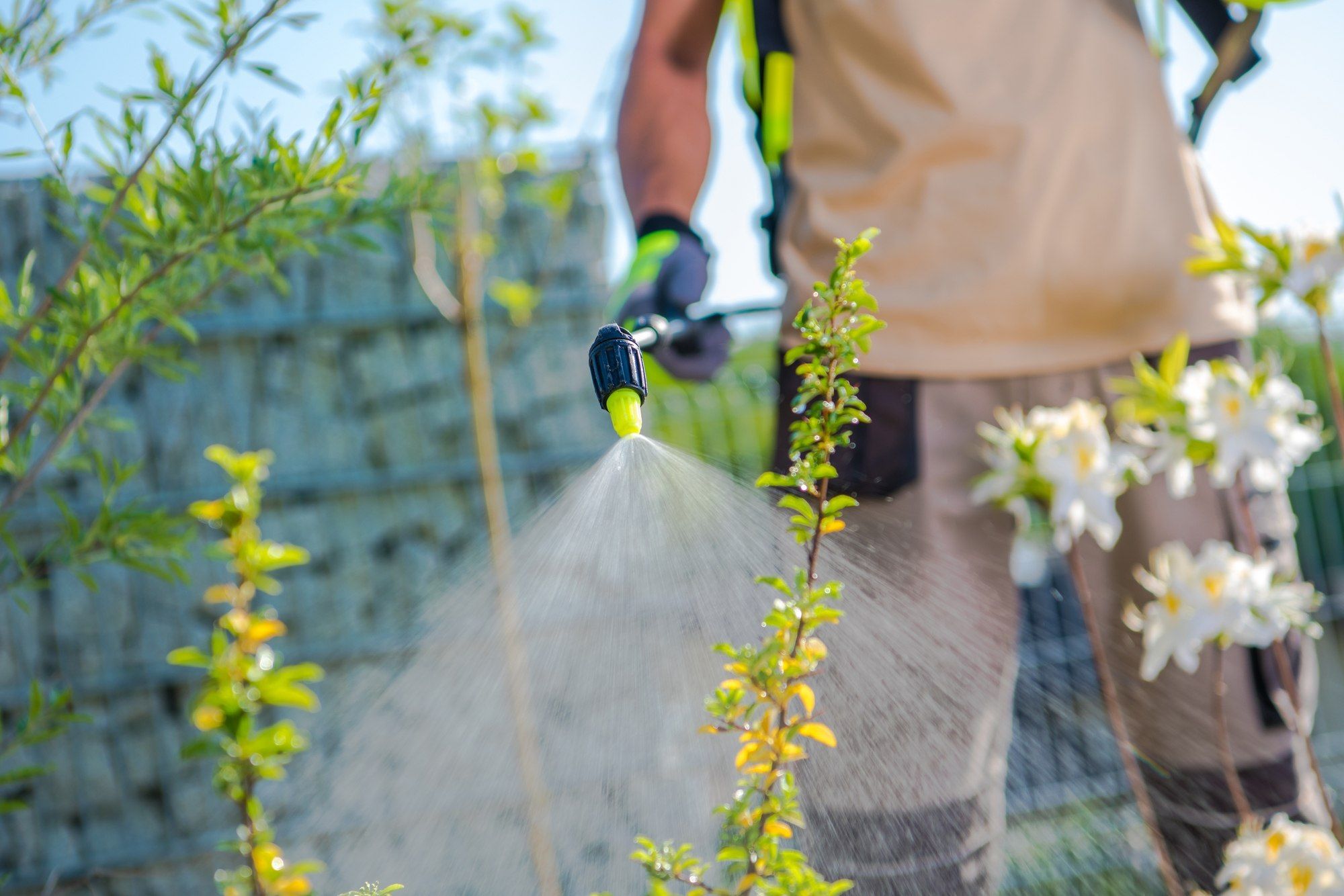Top Class Actions’s website and social media posts use affiliate links. If you make a purchase using such links, we may receive a commission, but it will not result in any additional charges to you. Please review our Affiliate Link Disclosure for more information.
Glyphosate in Roundup is a contentious subject. There have been many Roundup class action lawsuits and claims that glyphosate in Roundup is causing cancer. Are the claims valid? Is glyphosate in Roundup harmful? Here is everything you need to know about glyphosate in Roundup.
What is Glyphosate?
Glyphosate is an herbicide found in Roundup and other similar products. The chemical comes in several forms, including acid and many kinds of salt. Products containing glyphosate are used to kill weeds or other unwanted plants. When Glyphosate comes into contact with plants, it kills them. Glyphosate is not selective when it comes to killing plants, so it will cause most plants to die within a short time. Glyphosate in Roundup works by stopping plants from making proteins that they need to grow. The plant’s shikimic acid pathway is hindered by glyphosate, so the plant ceases to grow and perishes.
Is Glyphosate in Roundup?
Yes, there is glyphosate in Roundup. Roundup’s main ingredient is glyphosate, along with a mixture of other chemicals. Aside from glyphosate in Roundup, In the United States, there are more than 750 products that contain glyphosate. Glyphosate in Roundup is used by farmers and homeowners in forests, farms and gardens.
What are the Dangers of Having Glyphosate in Roundup?
Having glyphosate in Roundup can cause irritation on the skin or eyes. If a Roundup user is exposed, in contact with, or inhales the herbicide, symptoms can develop. It is possible to swallow the herbicide if you eat or smoke after using it without washing your hands. Symptoms can include burns, vomiting, diarrhea, and more. Some deaths have occurred due to the ingestion of Roundup. Pets can also be compromised by Roundup and produce symptoms after coming into contact with Roundup.
Glyphosate in Roundup being the cause of cancer is a controversial topic. While some studies say it is carcinogenic, others disprove this. Human and animal studies have been conducted in several countries, including evaluations by the World Health Organization (WHO). Many agencies have looked into the potential cancer-causing nature of glyphosate by feeding laboratory animals large doses of the herbicide. Based on those studies, glyphosate is not cancer-causing. However, study examinations by scientists at the International Agency for Research on Cancer of the WHO show that glyphosate is likely to cause cancer. Many studies show that heavy usage of Roundup’s glyphosate, as in people who farm for a living, are more likely to suffer from types of cancer. The average household user is less likely to develop cancer from using Roundup sparingly. The studies are mixed, and there is no concrete proof in either direction.
Why Have Roundup Class Action Lawsuits Been Filed?
Glyphosate class action lawsuits have occurred, in fact, there have been many. There are several class action lawsuits that claim that Monsanto has created false reports about Roundup. According to the glyphosate lawsuits, Monsanto willfully created false reports to show that Roundup is safe for humans and does not cause cancer. Moreover, the glyphosate lawsuits allege that Monsanto made deceptive marketing claims, in advertisements that say the product is non-toxic.
Roundup class action lawsuits have been filed for claims of the product causing Parkinson’s, Alzheimer’s disease, non-Hodgkin’s lymphoma, and other cancers.
There has been a flurry of Roundup class action lawsuits over the controversial effects of the product.
In August 2018, a San Francisco groundskeeper was awarded $289 million in a glyphosate lawsuit. The plaintiff alleged that Roundup caused his non-Hodgkin’s lymphoma.
And In May 2019, a husband and wife from California were granted $2 billion in another Roundup lawsuit. Both plaintiffs alleged they suffered from non-Hodgkin’s lymphoma as a result of using Roundup.
Who Can File a Glyphosate Roundup Lawsuit?
Anyone who has been diagnosed with cancer, or has a loved one who has been diagnosed with cancer after being exposed to Roundup, can potentially file a glyphosate lawsuit. Filing a class action lawsuit Canada against Roundup claiming side effects from using the herbicide, certainly would not be the first. Many plaintiffs have been seeking compensation and able to lessen their financial stress due to medical bills and lost wages by filing lawsuits against Roundup’s makers.
Many agricultural workers and homeowners who used Roundup on their lawns and gardens have claimed to have been diagnosed with non-Hodgkin’s lymphoma, chronic lymphocytic leukemia, hairy cell leukemia, and other forms of cancer. Many of these people who think their cancer diagnosis was due to Roundup use have pursued legal claims.
If you think you have a claim, be sure to get a consultation with a lawyer to help guide you through the process.
Do YOU have a legal claim? Fill out the form on this page now for a free, immediate, and confidential case evaluation. The Canadian lawyers who work with Top Class Actions will contact you if you qualify to let you know if an individual Roundup glyphosate cancer lawsuit or Roundup class action lawsuit is best for you. [In general, Roundup lawsuits are filed individually by each plaintiff and are not class actions.] Hurry — statutes of limitations may apply.
ATTORNEY ADVERTISING
Top Class Actions is a Proud Member of the American Bar Association
LEGAL INFORMATION IS NOT LEGAL ADVICE
Top Class Actions Legal Statement
©2008 – 2024 Top Class Actions® LLC
Various Trademarks held by their respective owners
This website is not intended for viewing or usage by European Union citizens.
Get Help – It’s Free
Join a Free Canada Roundup Class Action Lawsuit Investigation
U.S. citizens, click here for the U.S. Roundup Cancer Investigation.
If you qualify, an attorney will contact you to discuss the details of your potential case at no charge to you.
PLEASE NOTE: If you want to participate in this investigation, it is imperative that you reply to the law firm if they call or email you.














